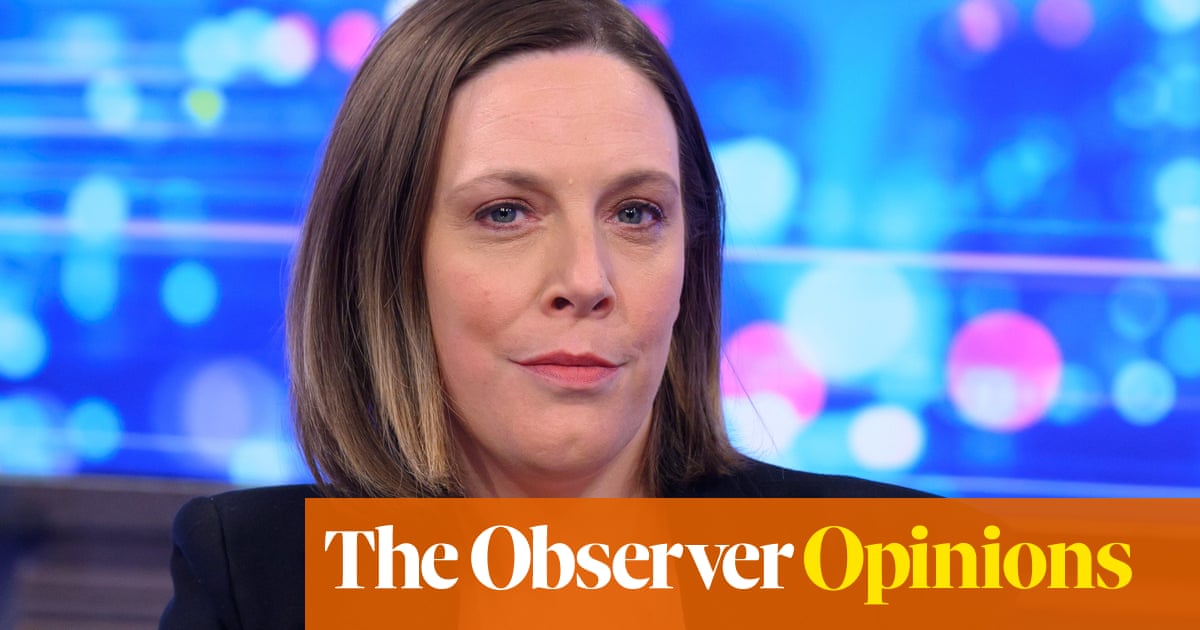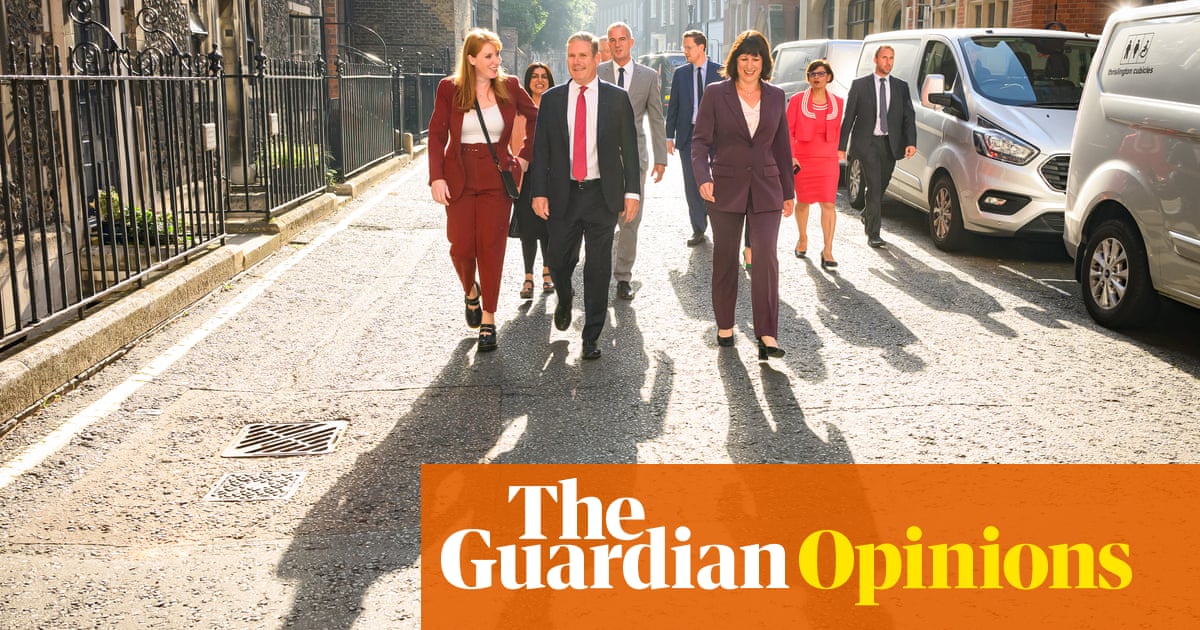
When Labour wins a general election by centrist means, some on the left of the party always have mixed feelings. They welcome the crushing of the Conservatives. It’s sometimes forgotten by centrists that the Labour left hates the Tories with a particular intensity. The left’s optimists also often hope, despite evidence to the contrary, that a Labour victory will open up new socialist possibilities – or at least provide some emotional catharsis. When Tony Blair won his 1997 landslide, Diane Abbott went to the Labour celebrations at the South Bank, she told her biographers Robin Bunce and Samara Linton. “And it was just the most amazing feeling … It felt like I had waited my whole life for this.”
Yet, mixed in with such elation can be a sinking feeling that the left’s enemies inside the party have been vindicated. What Keir Starmer always pointedly describes as his “changed Labour party” – others would call it a purged Labour party – has almost doubled its number of parliamentary seats, after ditching most of its leftwing policies and conducting an election campaign that prioritised winning over Tory voters with promised restrictions on public spending and with traditional patriotic themes. In the huge new parliamentary Labour party, the few dozen MPs considered leftwingers – the label can be hard to apply precisely – will be even more outnumbered than before. In the strange new world of British politics, likely to be dominated by both Starmer’s stern realism and the rightwing fantasies of Reform, does the Labour left, and the left more generally, still have a future?
One way to try to answer this question is to look at the election results: not the headline changes, but the more subtle shifts in local and national support. Strikingly, among the few Labour MPs who increased their majorities were several leftwingers: both veterans such as John McDonnell and much younger figures, such as Olivia Blake, Richard Burgon and Zarah Sultana – the latter of whom is seen by some on the left as a potential future challenger for the Labour leadership and last night increased her majority from 401 to 10,201. In an election where enthusiasm for Labour was harder to find than fury against the Tories, in some places the left did manage to connect strongly with voters, despite the conventional wisdom that its moment has passed.
In Islington North, running as an independent against the far greater resources of the party that disowned him, Jeremy Corbyn won much more comfortably – by more than 7,000 votes – than most pollsters and even many of his canvassers expected. In this contest – as in others across urban Britain – Gaza, the climate crisis, the housing crisis, the cruelty of the benefits system and other issues insufficiently addressed by Starmer, at least in the left’s view, eroded Labour’s support. The party’s national vote share was startlingly thin: little more than a third (34%), far lower than Corbyn’s party got in 2017, and not much more than it managed in its heavy 2019 defeat.
Some of Labour’s modest total support this time was probably down to tactical voting, to party supporters backing the Lib Dems to eject Conservatives. But Labour’s ambiguous mandate, both overwhelming and unconvincing, also reflects the fact that for millions of Britons, Starmer’s party is not too leftwing, as the Tory press claims, but too centrist or rightwing. As the authoritative British Social Attitudes survey has been showing for several years now, on economic issues in particular, public opinion is in a leftwing phase. If that remains the case for several years more – and the behaviour of big businesses such as the privatised utilities isn’t winning capitalism many converts – the left’s longer term prospects in Britain may be better than they seem at present.
And yet, as Starmer’s no doubt exhausted but deeply satisfied electoral strategists will tell you, winning moral arguments and obtaining political power are not the same thing. So how might the left maximise what leverage it does have?
One way would be to try to find common ground with the government’s more left-leaning members, such as Ed Miliband and Angela Rayner. They need help to prevent Labour’s remaining relatively radical policies – for instance on improving workers’ rights and investing in green technologies – from being further watered down. Another, more long-shot strategy for the left would be to try to influence Starmer himself. For all his shifts to the right as leader, he has continued to talk about creating “an economy that works for working people”. Close allies insist that his commitment to this goal, which would reverse decades of inegalitarian trends, is genuine. The vagueness of his language – who exactly are “working people”, and in what ways could an economy “work” for them? – suggests a possible opportunity for the left to help define these terms through private lobbying and public campaigns.
The left could have an important say in another fundamental debate that may soon happen inside and outside government: about how to pay for more state spending. McDonnell and other leftists believe that within a year or two, Starmer will be forced to raise taxes to avert a meltdown in public services. It’s easy to see that as leftwing wishful thinking, but recently hints emerged from the Labour campaign that the party was drawing up contingency plans to raise more revenue from the wealthy, through changes to capital gains tax and inheritance tax. Unless the economy and existing tax revenues improve dramatically, or the Labour right suddenly produces innovative fiscal ideas in a way that it has failed to do ever since Blairism ran out of steam two decades ago, leftwing solutions to Britain’s great public spending crisis might be the only ones that the Starmer government finds available.
If Starmer and the equally stern chancellor Rachel Reeves stick to a different, more rightwing path, the Labour left could become perpetual anti-government rebels, as Corbyn, Abbott and McDonnell did during Blair’s premiership. In this role, leftwing MPs may receive unlikely encouragement from a rightwing press desperate to find ways to undermine Starmer. More genuine support would come from the large minority of Britons who still see themselves as socialists, and from protest movements outside parliament. As Corbyn’s capture of the leadership showed, such networks can become very potent. But the process is slow: 32 years passed between his election as an MP and his election as leader. In today’s more impatient, more personally exposing politics, it’s hard to imagine one of the dozen young leftwing MPs gradually working their way to the top of the party by the middle of this century.
Well before then, they may be tempted to abandon Labour altogether. From one common leftwing perspective, Starmer’s leadership has already been yet another demonstration of Labour’s fundamental intolerance towards socialists, and of the need to set up a new party. Yet the British electoral system notoriously discourages such ventures. In our politically fragmented, polarised, populism-haunted era, the least bad option for the Labour left, and for the Starmer government with its vast but brittle majority, may be to try to find a few ways to work together. For what might transpire if such a collaboration never happens, the French elections this Sunday may provide a warning.
Andy Beckett is a Guardian columnist












